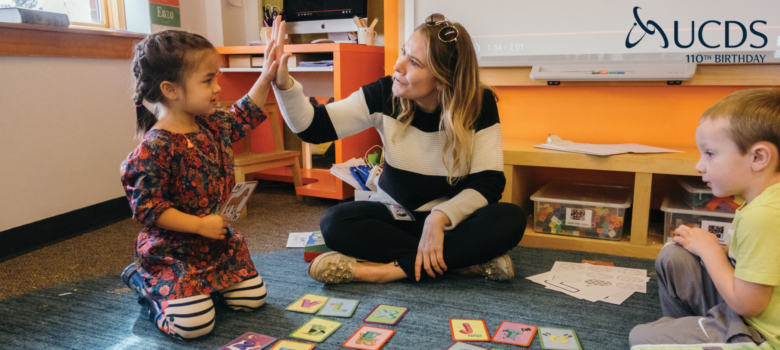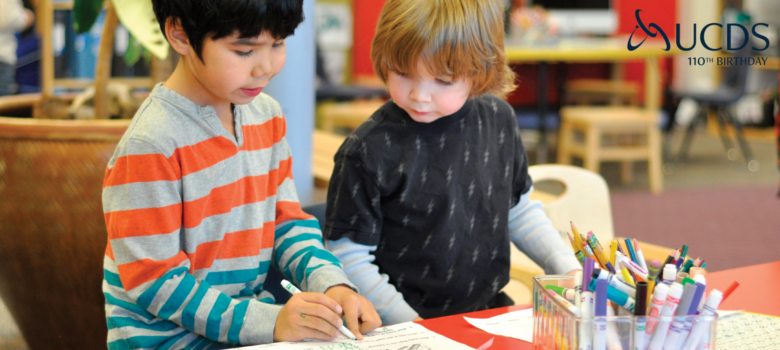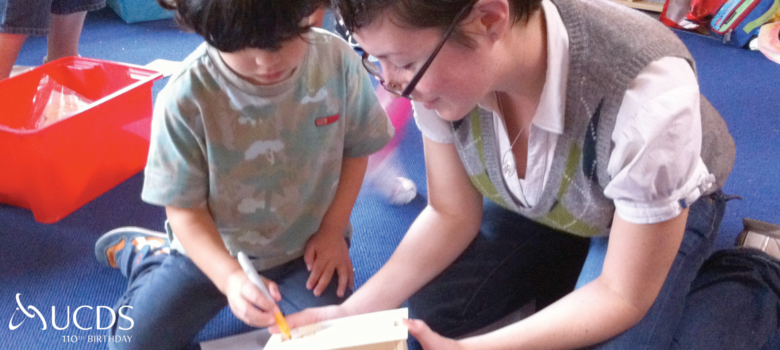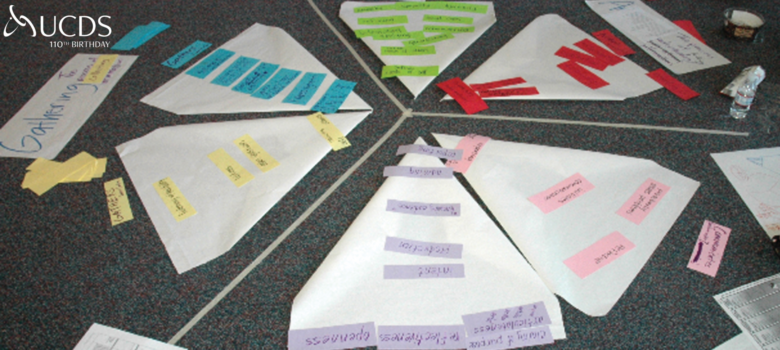It is easy to get into a rut and feel like things are not going right. 3/4s teacher Jenn Drake explains the importance of avoiding a pessimistic mindset and using challenges as learning lessons and opportunities for growth. Jenn describes how adults can model this for children. -Ed.
– – – –
I started out the month thinking a lot about how parents bend over backward to make their kids happy. This is a theme that has reemerged several times when I conference with parents over the years. Sometimes a child comes home after a rough day at school – sometimes he was asked to do something he didn’t want to do, he was bored, or he had to talk with a teacher about too much rough play out at recess. As a parent, I understand the urge to soothe things, to make the child feel better. But I think what happens in that moment, when we parents make that choice, is we inadvertently tell the child that he is incapable of handling life’s ups and downs. We blame the teacher or the other kids or the curriculum. We present our kids with a victim-mentality, assuring them that it isn’t their problem, really, and we often go further by calling the school and pointing the finger.
I’m happy to say that this is a rare response by the parents I work with daily! But I’ve seen it happen before and I want to challenge all caregivers to rethink the way they frame their own experiences and those of their children. To do this, I had to take a hard look at the way I was talking about my own days. When I looked critically, I couldn’t believe how often I complained about the traffic or huffed about how little I was able to get done. One day, while driving with my daughter, I totally reframed the way I responded to her question: “How was your day?” I said, “Well, I had a challenge today when Johnny critiqued my project. I thought he was right – it could have totally improved! Anyone can get better at anything. But I learned more than that. I learned that if I want someone to make a change on their work, I’d say it differently. I’d say something like, ‘Hey, next time you could try…’ And so even though it was hard to hear things that way, I feel like I got a little closer to my goals of working with other people in a positive way.” WOW! I felt great. My daughter kept asking questions about my goals and I kept talking about them. It was an optimistic way of reframing an experience, taking responsibility for my own feelings, and seeing the positive in it. I talked about my learning, my growth. It was real. That’s the kind of example I want to set.
So next time your child complains, instead of feeding it by agreeing that the world is out to get him, try helping him to reframe those thoughts. Try focusing on what he can do in that situation (remembering that sometimes there’s nothing to be done!) or what he can learn from it. Make it into a challenge to reach a personal goal. Help your child grab life by the horns and take charge of his own situation. I bet you’ll be amazed by the results.
http://www.pbs.org/parents/expert-tips-advice/2016/10/encouraging-optimism-children/
I love the simple tips and the reminder to be gentle. There’s no convincing someone who is a pessimist that things are great. They probably aren’t! But it is important to help kids reframe their thinking. It’s the classic half full or half empty – both are true. I was particularly drawn to the idea that if a child complains about something, they have to say two things that are positive. This is the one idea that seems to really put the responsibility on the child to reframe their thinking. The other tips encourage parents to think out loud and do the reframing for kids. While it’s certain they need both models and opportunities to practice, I love having the rule in place that honors both complaints and shows some gratitude for the good stuff in life, too.
Jenn Drake, UCDS Teacher





